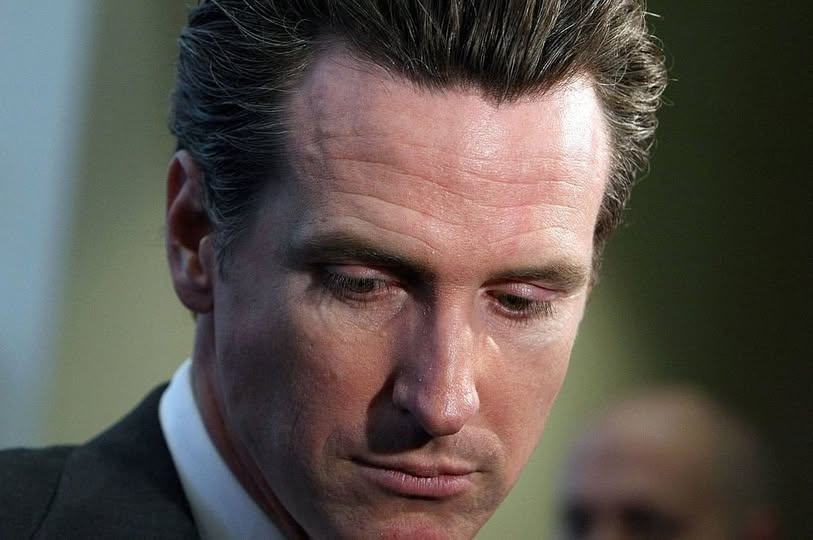Thirty minutes ago in California, Governor Gavin Newsom was officially announced as the keynote speaker for the upcoming National Climate Action Summit, solidifying both his state’s and his personal leadership role in the climate policy arena. The announcement came via a live stream from San Francisco and immediately drew national attention to Newsom’s growing influence. For California, it’s another affirmation of its self-perception as more than just one of fifty states—it has long positioned itself as a “nation-state” in the fight against climate change. For Newsom, the platform offers a chance to showcase his policies, refine his message, and perhaps lay the groundwork for ambitions that extend beyond Sacramento.
The timing is deliberate. The summit occurs amid a contentious political season, where climate change increasingly divides both parties and factions within them. Newsom has consistently framed climate change as an existential threat—not only to California’s coastlines and forests but also to the health and future of coming generations. On this main stage, he is expected to unveil new policy initiatives aimed at raising environmental standards further, from tougher emissions reduction goals to accelerated renewable energy mandates.
California’s reputation as a climate trailblazer is no coincidence. Under Newsom, the state has implemented pioneering measures to phase out gas-powered vehicles, expand clean energy infrastructure, and enforce stringent carbon caps. These policies have often placed California at odds with industry leaders, conservative states, and even the federal government. Yet they have also cemented the state’s image as a testing ground for progressive climate policies—where ambitious ideas are piloted before potentially spreading nationwide. Newsom’s speech is likely to highlight these achievements, framing them not as burdens but as long-term investments in jobs, public health, and stability.
Political observers note broader implications. With whispers of a potential presidential bid, Newsom’s keynote is seen as a high-profile audition for national leadership. Climate change, once a niche topic, now commands mainstream attention, particularly among younger voters. By embracing this issue, Newsom strengthens his base while distinguishing himself from rivals less willing—or able—to act decisively. His message is expected to portray climate action as not just an environmental necessity but a moral and economic imperative, setting visionaries apart from status-quo politicians.
The announcement drew swift reactions. Environmental groups praised the decision, viewing it as evidence that the summit would carry real weight. Many activists see Newsom as one of the few leaders capable of placing climate change back into the headlines amid other crises. “This isn’t just about California anymore,” one advocate said. “It’s about setting the national agenda.” Meanwhile, industry groups and conservative lawmakers criticized the move, dismissing it as another instance of “California overreach.” They contend that Newsom’s aggressive policies have increased costs, hurt small businesses, and alienated working-class voters—a narrative likely to resurface after his speech.
Still, California’s status as a global climate leader remains clear, and Newsom has embraced it fully. He frequently cites the state’s devastating wildfires, prolonged droughts, and rising sea levels to underscore the urgency of climate action. To him, the stakes are tangible and immediate for millions of residents. The summit offers him the opportunity to urge governors, legislators, and international leaders to act decisively rather than delay.
For Newsom personally, the summit provides more than visibility. It allows him to refine messaging that could form the core of a national campaign. Climate change has moved from a background concern to a central challenge alongside healthcare, the economy, and foreign policy. By addressing a global audience, Newsom seeks to shape the Democratic discourse on climate for the coming decade—not just as a looming threat but as an opportunity for innovation, resilience, and collective responsibility.
Whether his message resonates nationally remains uncertain. Critics may argue that California’s model is unsustainable, citing blackouts, housing shortages, and high living costs as evidence. Supporters will counter that true leadership requires ambition and risk-taking, even in the face of resistance. The summit, therefore, is no longer simply a policy discussion—it has become a political stage.
In an era dominated by political gridlock and short-term thinking, Newsom’s speech represents an effort to elevate the conversation. His challenge will be convincing Americans that climate action is not merely a California issue or partisan talking point but a defining responsibility for this generation of leaders. As he steps into the spotlight, one thing is certain: the nation will be watching, not just to hear his plans for the planet’s future, but to see whether he is preparing to assume a larger role in shaping America’s trajectory.
